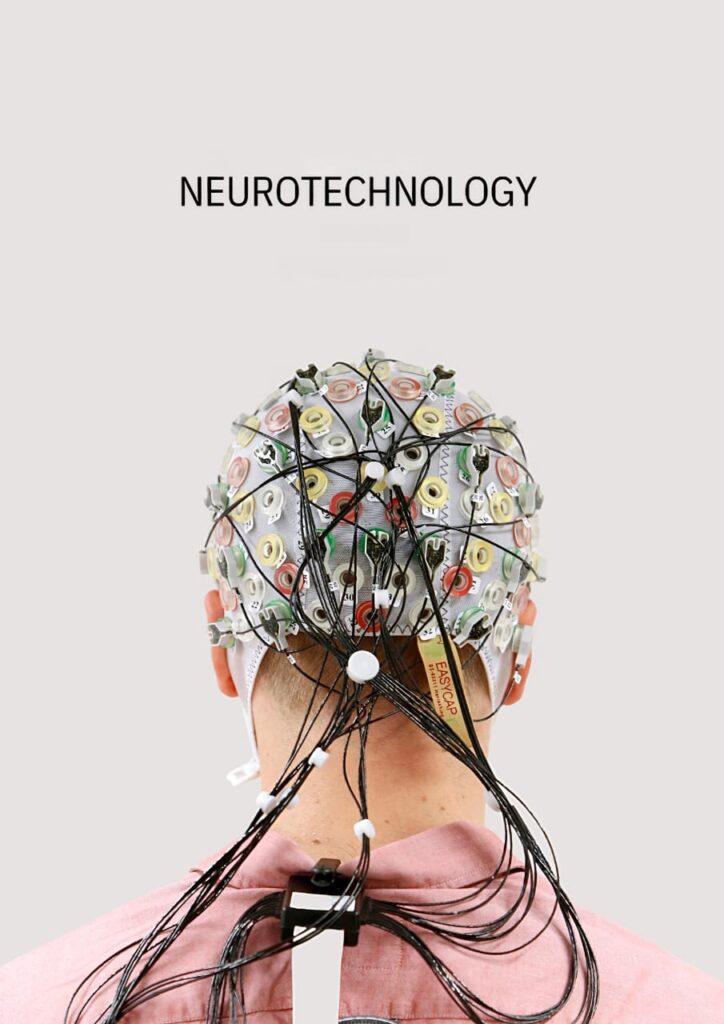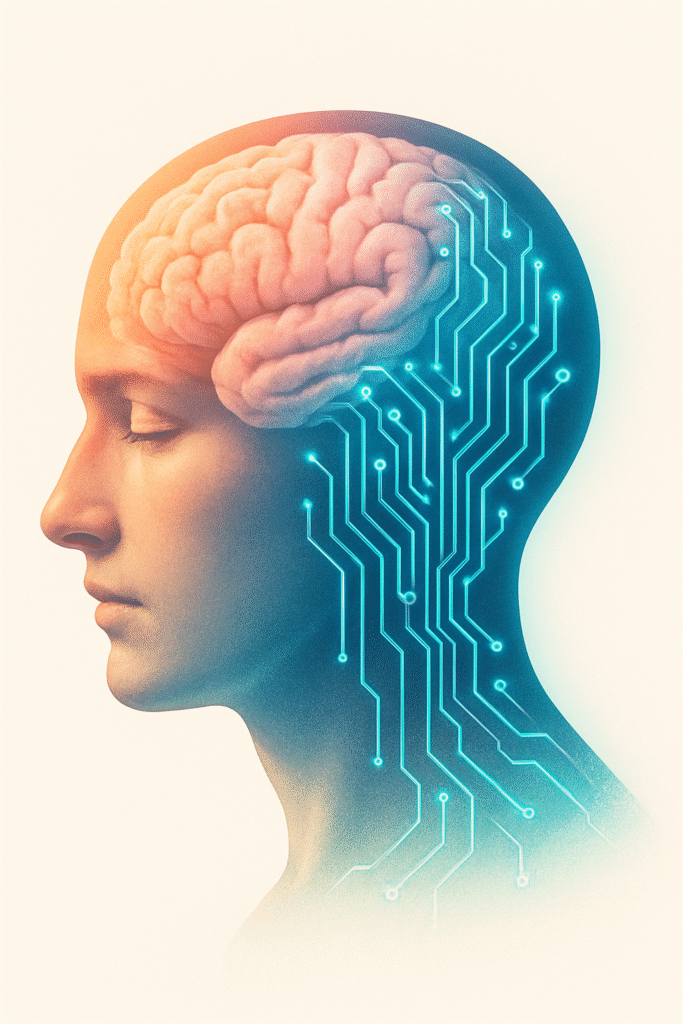
When Your Thoughts Can Be Hacked: The Rise of Neurotechnology
“What happens when your thoughts are no longer private?”
Welcome to the Age of Neural Vulnerability
Imagine lying in bed, eyes closed, as the faint glow of your phone is replaced with the humming interface of a brain-computer connection. Commands, memories, and even stray daydreams now bridgeable by circuitry. This isnʼt science fiction. Brain-computer interfaces BCIs are rapidly advancing from lab demos to commercial products, with promises that range from restoring lost mobility to streaming music via thought alone. But the hidden cost of this convenience? The unprecedented vulnerability of the most private bastion you have your mind.

The Science: Circuitry Meets Consciousness
Modern neurotechnology is already being deployed to help paralysis patients regain control over robotic limbs, to decode simple words from neural signals, and to treat neuropsychiatric disorders. Tech giants, startups, and research institutions race for patents, perfecting noninvasive wearables, implantable chips, and cloud-linked neural data platforms.
The next generation of BCIs wonʼt just read signals: they will interpret, enhance, and potentially rewrite neural patterns. This raises not only possibilities for personalized medicine but also new frontiers of risk. The digital and the biological are merging cue the unsettling future where a human head is a living circuit, glowing neon with both opportunity and threat.
The Privacy Paradox
BCIs and related tech leave current privacy frameworks hopelessly outdated. Previously, “private thoughts” were a given; social media data or smartphone browsing belonged to a weaker, outer layer of identity. But what happens when a device can:
- Record raw brain activity in real time?
- Predict your choices, emotions, or intentions before you act?
- Be remotely accessed, updated, or even “hacked” by bad actors, rogue apps, or authoritarian regimes?
Leading scholars warn that true neural privacy may become impossible without radical legal and ethical innovation. Unlike search histories or GPS logs, neural data are not just about what you do they are about who you are.
Risks: From Data Breaches to Mind Manipulation

The dystopian scenarios arenʼt just techno-phobia. Real risks include:
- Neural data leaks: Hackers could steal thoughts, secrets, even creative ideas, bypassing every security measure you currently trust.
- Behavioral nudging: Subtle changes in neural feedback could reshape preferences, habits,or beliefs what would corporate advertising or state propaganda do with mind access?
- Loss of consent: With AI-powered BCIs, who controls updates, permissions, or data flow? Are users fully informed? Is “off” ever truly off?
The Ethical Frontier
Scholars and ethicists argue that neurotechnology fundamentally alters the meaning of autonomy, consent, and identity. We are moving from the “Internet of Things” to the “Internet of Thoughts.” The legal right to mental privacy, cognitive liberty, and protection from “neurosurveillance” is now being debated in white papers and policy forums globally.
Proposed solutions include:
- Neural Data Bill of Rights: Establishing consent, access, and erasure rights for brain-based data.
- Strict medical oversight for any invasive neurotech.
- Transparency from companies about exactly what is read, stored, and potentially shared.
But most experts agree: legislation and consensus lag behind tech development by years, even decades.

Are We Ready?
BCIs are poised to upend not just how we interact with technology, but how we conceive of ourselves. For artists and psychologists, itʼs a twisted inspiration; for activists and privacy advocates, a clarion call. The next time you hear about “thought-controlled apps,” pause and consider: do you want to live in a world where your mind can be logged, mined, or manipulated by design?
We are on the threshold of an era where the digital storm isnʼt on your phone, but in your skull. As the neon glow of possibility blurs into risk, the question demands an answer: What happens when your thoughts are no longer private?
— Written by Shivam Shukla.
